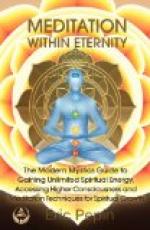His comments upon the death of his brother give us a vivid idea of the state of mind of the Tolstoi of that age:
“Never in my life has anything had such an effect upon me. He was right (referring to his brother’s words) when he said to me there is nothing worse than death, and if you remember that death is the inevitable goal of all that lives, then it must be confessed that there is nothing poorer than life. Why should we be so careful when at the end of all things nothing remains of what was once Nicolai Tolstoi? Suddenly he started up and murmured in alarm: ‘What is this?’ He saw that he was passing into nothingness.”
From the above it will be seen that the Tolstoi of those days was a materialist pure and simple. “He saw that he was passing into nothingness,” he said of his brother, as though there could be no question as to the nothingness of the individual consciousness that he had known as Nicolai, his brother.
This soul-harrowing materialism haunted Tolstoi during all the years of his youth and early manhood, and threw him constantly into fits of melancholy and inner brooding. He could neither dismiss the subject from his mind, nor could he bring into the area of his mortal consciousness that serene contemplation and optimistic line of reasoning which marks all that Emerson wrote.
Tolstoi’s morbid horror of decay and death was not in any sense due to a lack of physical courage. It was the inevitable repulsion of a strong and robust animalism of the body, coupled with a powerful mentality—both of which are barriers to the “still small voice” of the soul, through which alone comes the conviction of the nothingness of death.
A biographer says of Tolstoi:
“The fit of the fear of death which at the end of the seventies brought him to the verge of suicide, was not the first and apparently not the last and at any rate not the only one. He felt something like it fifteen years before when his brother Nicolai died. Then he fell ill and conjectured the presence of the complaint that killed his brother—consumption. He had constant pain in his chest and side. He had to go and try to cure himself in the Steppe by a course of koumiss, and did actually cure himself. Formerly these recurrent attacks of spiritual or physical weakness were cured in him, not by any mental or moral upheavals, but simply by his vitality, its exuberance and intoxication.”
The birth of the new consciousness which came to Tolstoi a few years later, was born into existence through these terrible struggles and mental agonies, inevitable because of the very nature of his heredity and education and environment. Although as we know, he came of gentle-folk, there was much of the Russian peasant in Tolstoi’s makeup. His organism, both as to physical and mental elements, was like a piece of solid iron, untempered by the refining processes of an inherent spirituality. His never-ceasing struggle for attainment of the degree of cosmic consciousness which he finally reached was wholly an intellectual struggle. He possessed such a power of analysis, such a depth of intellectual perception, that he must needs go on or go mad with the strain of the question unanswered.




